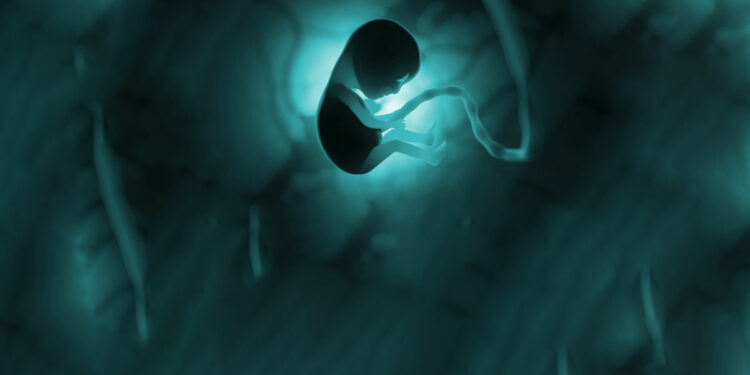During an IVF cycle, patients are often given pictures of their embryos along with a grading score which may look awfully technical. The purpose of this article is to clarify some of the mysteries around embryo grading systems and explain how grading systems work.
Embryo grading is a technique used by fertility specialists to assess the quality of embryos produced through in vitro fertilization (IVF) before they are transferred to the uterus. The process involves examining embryos under a microscope and assigning grades based on certain criteria, such as the number of cells, the evenness of cell division, and the degree of fragmentation (how many pieces of dead or degenerating cells are present). The grading helps in selecting embryos that are most likely to implant successfully and result in a pregnancy.
A blastocyst is a stage of embryo development that occurs approximately five days after fertilization. At this stage, the embryo has developed into a structure consisting of 200-300 cells organized into two distinct parts:
1. An inner cell mass, which will eventually develop into the fetus.
2. An outer layer called the trophoblast, which will form part of the placenta.
Which one is important for embryo quality? The inner cell mass or the trophectoderm?
Both the inner cell mass (ICM) and the trophectoderm (sometimes spelled trophoectoderm) are crucial components of a blastocyst-stage embryo, but they serve different essential roles in development and implantation.
1. Inner Cell Mass (ICM): The ICM is vital because it develops into the fetus itself. Therefore, the health and viability of the ICM are directly linked to the development of the embryo into a healthy baby. The quality, size, and cell allocation of the ICM are critical indicators used in embryo grading to predict the potential for successful fetal development.
2. Trophectoderm: The trophectoderm forms the outer layer of the blastocyst and is responsible for initial implantation into the uterine wall. It also develops into the placenta and other supporting fetal structures. The trophectoderm facilitates the exchange of nutrients and waste between the mother and the developing embryo and is essential for the establishment and maintenance of the pregnancy.
In the context of IVF and embryo grading, the significance of each component can vary depending on what aspect of the pregnancy is being considered:
– For fetal development: The ICM is more critical because it becomes the fetus.
– For implantation and pregnancy support: The trophectoderm is more important because it enables the embryo to implant and sustains its growth through the placenta.
Therefore, both parts are equally important for a successful pregnancy, as each performs functions that are indispensable to the continuation of a healthy pregnancy. Embryo grading typically considers the appearance and health of both the ICM and the trophectoderm to maximize the potential for successful implantation and fetal development.
Blastocysts (day 5 embryos) are often preferred for transfer in IVF procedures because they have a higher chance of implanting in the uterus compared to embryos transferred at earlier stages of development. This preference is partly due to the natural selection process; embryos that reach the blastocyst stage are generally more viable and robust. Additionally, transferring at the blastocyst stage allows for better synchronization with the woman’s uterine lining, potentially increasing the chances of a successful pregnancy.
Gardner grading system of embryos is the most commonly used embryo grading system. There are three separate domains that are graded in this system:
1. Blastocyst development stage – a range from 1 – 6
2. Inner cell mass (ICM) score, or quality – range A – C
3. Trophectoderm (TE) score, or quality – range A – C
To understand the quality of your embryos, you can refer to this simple chart:
| Blastocyst Stage | Quality grade | Description |
| Early
blastocyst |
1 | The blastocyst cavity is less than half the total volume of the embryo. |
| Blastocyst | 2 | The blastocyst cavity is greater than or equal to half of the volume of the embryo. |
| Full blastocyst | 3 | The blastocyst cavity completely fills the volume of the embryo. |
| Expanded blastocyst | 4 | The blastocyst cavity volume is larger than that of the early embryo and the surrounding membrane is thinning |
| Hatching
blastocyst |
5 | The outer layer of cells has started to herniate through the surrounding membrane |
| Hatched
blastocyst |
6 | The blastocyst has completely escaped from the surrounding membrane |
| Blastocyst Structure | Grade | Description |
| Inner cell mass | A | Many cells that are tightly packed |
| Inner cell mass | B | Several cells that are loose |
| Inner cell mass | C | Very few cells |
| Blastocyst Structure | Grade | Description |
| Trophectoderm | A | Many cells |
| Trophectoderm | B | Few cells |
| Trophectoderm | C | Very few cells |
While morphological appearance of an embryo is the most reliable data on its viability, there are many other factors that affect the chance of a successful pregnancy. Nevertheless, embryo grading provides us with a reliable information on how likely an embryo will produce a pregnancy and a live birth given all other conditions are met.
When choosing an embryo for transfer, 5AA is the optimal embryo which shows highest quality grading for both the stage of development and the cellular composition. 5AB and 5BA embryos also have quite a good chance of success in an embryo transfer. The lower the quality grade, the lower the chance of pregnancy success after an embryo transfer.
Ideally, a quality grading of 3, 4 or 5 should be observed on a day 5 embryo with grades 4 and 5 being superior in their pattern of development. Inner cell mass and trophectoderm grading of A and B are reliable indicators of embryo survival after transfer. According to clinical research in the field (1, 2), blastocysts that are used for transfer that are graded 3AA, 4AB, 4BA or above have a clinical pregnancy rate of slightly higher than 60%, on average (5AA being higher compared to 4AB, for instance). For embryos graded 4BB, 4AC, 3BB, 2AB and 2BA, the pregnancy rate has been estimated to be around 45-50%. With blastocysts with the grade of 3BC, 4CB, 4CC and 2BB, the clinical pregnancy rate is estimated to be around 30%.
With single embryo transfers, chance of success can be lower compared to multiple embryos being transferred. However, multiple embryo transfers may increase the likelihood of a higher order pregnancy. A single embryo transfer or a multiple embryo transfer can be a decision which can be made after your embryos have received their embryo grading on the day of their blastocyst assessment.
References:
1. Zhao YY, Yu Y, Zhang XW. Overall Blastocyst Quality, Trophectoderm Grade, and Inner Cell Mass Grade Predict Pregnancy Outcome in Euploid Blastocyst Transfer Cycles. Chin Med J (Engl). 2018 Jun 5;131(11):1261-1267.
2. Xia M, Cai L, Zeng Q, Liu J. Trophectoderm grade predicts pregnancy outcomes in single blastocyst transfer cycles. Fertility and Sterility. 2016 Sep;106(3).




